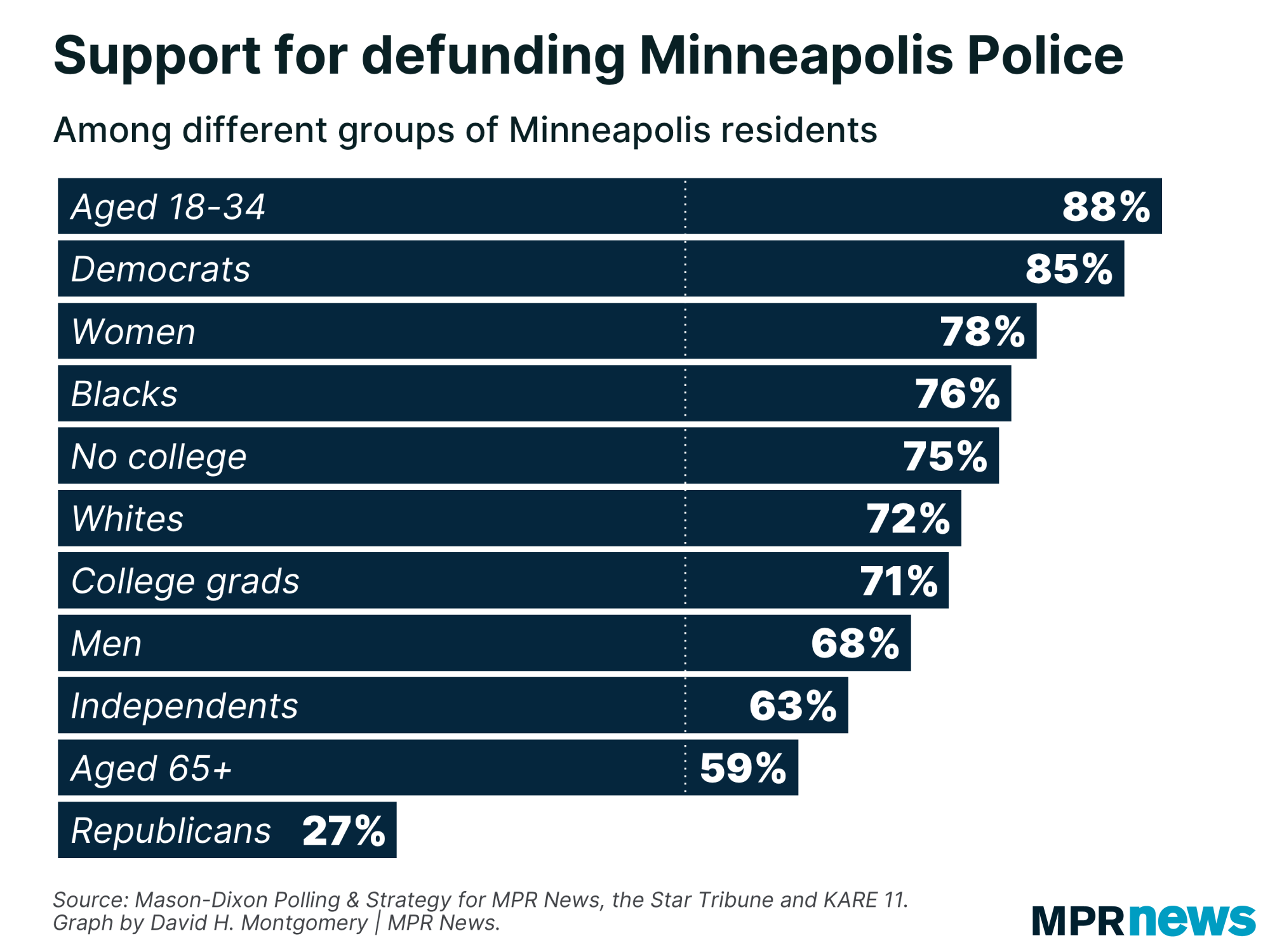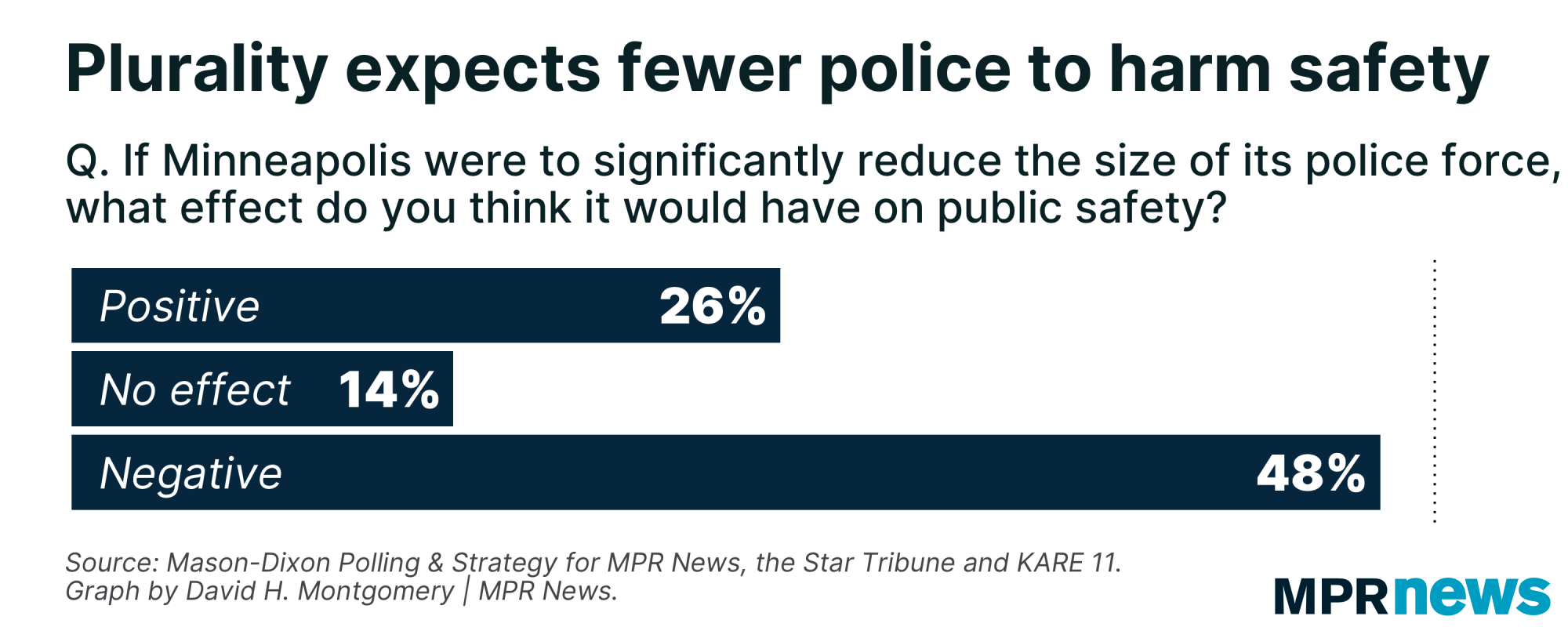Defund the police but no reduction in cops — Just what do Minneapolis’ residents want?
This weekend saw the release of a major poll on behalf of MPR News/StarTribune/KARE-11 which asked Minneapolis’ voters their opinions about city and police leadership, the police union, and race and the criminal justice system. The findings were somewhat puzzling.
Less police spending, same amount of cops?
The poll found that a hefty 73 percent of voters in Minneapolis supported ‘defunding the police’, ie, switching some of the department’s budget to spending on social services. The measure found support among a number of categories of voters, Republicans being a notable exception.


Whatever else this measure might mean, unless it involves hefty cuts to police officer’s salaries, it means fewer police officers. Yet, 44 percent of Minneapolis voters think that the police department should not be reduced in size.

This is bizarre. As a matter of arithmetic, at least 23 percent of those who said they wanted to cut the police department’s funding also said that they didn’t want to cut the number of police officers.
Maybe they expect the officers to take drastic pay cuts. Maybe they haven’t linked the two things. Many voters will support a platform that raises government spending without raising taxes, that is how you end up with a federal debt of $20 trillion. It would have been useful for the pollsters to make this clearer with their question: Would you support ‘defunding the police’ knowing it means cuts to police numbers? What would happen to that figure of 73 percent?
Whites are more skeptical of the police than blacks
The poll offers further interesting findings. Echoing other research, it found that fewer black than white Minneapolis voters wanted to reduce the size of the city’s police force.

This is probably because blacks are disproportionately likely to be the victims of crime. As I wrote early last month, at least 13 of the 14 people murdered in Minneapolis since Memorial Day were black, numbers which have remained constant in the intervening period. This explains why the poll finds that 66 percent of black voters think that crime is up in Minneapolis while just 45 percent of white voters think the same.

As I’ve written before, the research is pretty clear that more cops means less crime. Minneapolis’ voters seem to get this, with the poll finding that 48 percent of them think that a reduction in police numbers would have a negative effect on public safety. It follows that the people most exposed to this risk will be most resistant to taking it.
